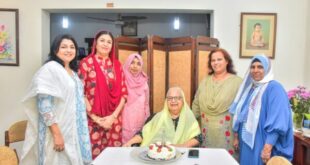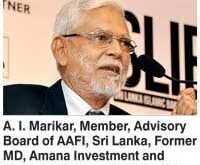Sir Razik Fareed (1893–1984) stands as one of the most distinguished figures in the history of Sri Lanka’s Muslim community. A visionary leader, diplomat, and statesman, he played a critical role in advocating for the rights and development of Sri Lankan Muslims and the broader national interest of the country. His legacy is marked by his tireless efforts to bridge gaps between communities, foster education, and lead with a vision that transcended his time.
Early Life and Background
Born on December 29, 1893, in Grandpass, Colombo, Sir Razik Fareed received his early education at Zahira College, Colombo, and later attended the prestigious Royal College. From a young age, he displayed leadership qualities and a deep commitment to his community. His upbringing and education helped shape his intellect and moral compass, positioning him as a key figure in the nation’s development during its crucial years.
Champion of Muslim Unity and Education
Sir Razik Fareed was not only an advocate for Muslim rights but also a staunch believer in the power of education as a means of uplifting his community. He founded numerous educational institutions, providing opportunities for underprivileged students and ensuring that the youth had access to quality education. His dedication to education as a transformative force for society remains a cornerstone of his legacy.
One of his most notable contributions to education was the establishment of Muslim Ladies’ College in Colombo. His vision was to empower Muslim women with education, believing that “every educated Muslim man should have an educated Muslim bride.” This initiative reflected his forward-thinking approach to gender equality and his desire to strengthen the community through education for both men and women.
Fareed was also instrumental in establishing the Ceylon Muslim Educational Society and supported various educational initiatives aimed at promoting the welfare of Muslims. His vision extended to creating institutions that provided not just religious education but also modern academic knowledge, thus preparing the younger generation for leadership roles in an evolving society.
Political Leadership and Advocacy
Sir Razik Fareed’s political journey began with his successful contest for the New Bazaar Ward of the Colombo Municipal Council, where he defeated the formidable N. Saravanamuthu, known as the “Lion of New Bazaar.” This victory marked the beginning of his influential role in Sri Lankan politics, where he would go on to advocate for the rights of the Muslim community while promoting unity among all ethnic groups.
He was a passionate champion of Sinhala-Moor unity and a united Sri Lanka, demonstrating that the interests of the Moor community and the welfare of all Sri Lankans were close to his heart. His dedication to bridging communities and fostering national harmony earned him the respect of many, and he was affectionately known as the “uncrowned King of the Ceylon Moors.”
Sir Razik Fareed served as a member of the State Council of Ceylon and later as a Member of Parliament, where his influence was instrumental in advancing the causes of both his community and the nation. His political career was characterized by his unwavering dedication to communal harmony, inclusivity, and the development of a united Sri Lanka.
Leadership in Community Organizations
Sir Razik Fareed’s commitment to his community is perhaps best exemplified by his long service as president and later as life president of the All Ceylon Moors’ Association for nearly 40 years. His leadership extended to the Moors’ Islamic Cultural Home, where he served as president for more than 40 years. These roles bear testimony to his unwavering dedication to advancing the interests and well-being of the Muslim community in Sri Lanka. Under his guidance, these organizations became pillars of support for Muslims, fostering cultural preservation, social welfare, and educational development.
Diplomat and Statesman
In recognition of his contributions, Sir Razik Fareed was knighted by the British Crown, a testament to his remarkable service not only to the Muslim community but to the nation as a whole. As a diplomat, he represented Sri Lanka on international platforms, advocating for the country’s interests and strengthening its ties with other nations.
His diplomatic efforts were not confined to state matters alone; he was also known for his role in the global Muslim community. His participation in international Muslim conferences helped build solidarity and mutual understanding between Muslims worldwide. Sir Razik Fareed’s eloquence and statesmanship earned him respect on both local and international stages.
Legacy of Philanthropy and Community Service
Beyond politics and education, Sir Razik Fareed’s philanthropic work left a lasting impact. He believed in the importance of social welfare and contributed to numerous charitable causes that benefitted not just Muslims but people from all walks of life. His work in healthcare, poverty alleviation, and disaster relief highlighted his compassion and commitment to uplifting the less fortunate.
The Razik Fareed Foundation, established in his honor, continues to carry forward his mission of service and development, ensuring that his vision lives on for future generations. His dedication to humanitarian causes has inspired countless individuals to follow in his footsteps, embodying the spirit of service and leadership.
A Life Well Lived
The legendary and respected Sir Razik Fareed passed away peacefully on August 23, 1984, at the age of 91, after a fruitful and dedicated service to the country in general and his community in particular. His life’s work was a testament to his belief in unity, justice, and progress for all communities in Sri Lanka.
Remembering Sir Razik Fareed’s Vision
Sir Razik Fareed’s legacy is more than just his achievements; it is the vision he left behind for a united, educated, and prosperous Sri Lankan society. His leadership was characterized by inclusivity, wisdom, and a forward-thinking approach that saw beyond the immediate challenges to a future where all communities could thrive together.
His life reminds us of the importance of selfless service, the power of education, and the need for unity in diversity. As we reflect on his contributions, we are reminded that the values he stood for—compassion, justice, and unity—are as relevant today as they were during his lifetime.
Conclusion
Sir Razik Fareed’s life was a beacon of hope and progress for the Sri Lankan Muslim community and the nation at large. His tireless dedication to education, community service, and national unity set a standard for leadership that few have matched. Today, as we pay tribute to his memory, we honor not just the man he was but the enduring legacy he left behind—a legacy that continues to inspire and guide future generations in the quest for a more inclusive and harmonious society.
Post Disclaimer | Support Us
Support Us
The sailanmuslim.com web site entirely supported by individual donors and well wishers. If you regularly visit this site and wish to show your appreciation, or if you wish to see further development of sailanmuslim.com, please donate us
IMPORTANT : All content hosted on sailanmuslim.com is solely for non-commercial purposes and with the permission of original copyright holders. Any other use of the hosted content, such as for financial gain, requires express approval from the copyright owners.
 Sri lanka Muslims Web Portal Sri Lanka Muslims News Center
Sri lanka Muslims Web Portal Sri Lanka Muslims News Center
 Donate
Donate


